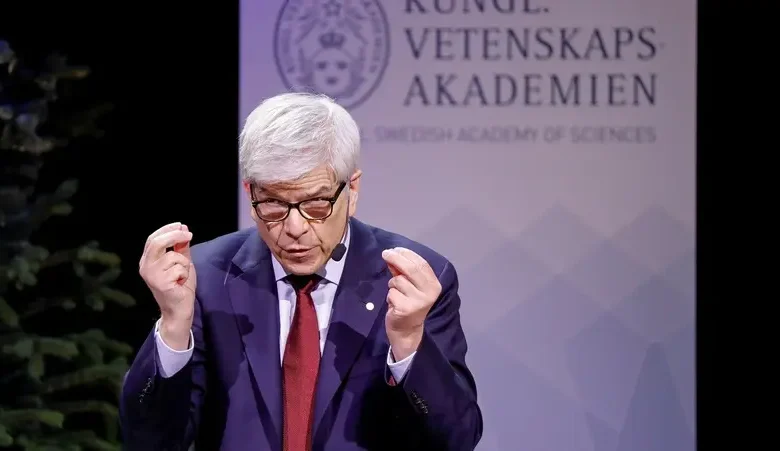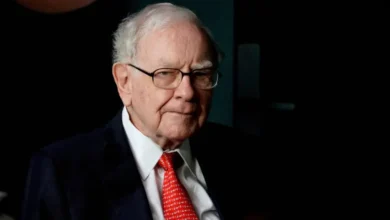Nobel Laureate Paul Romer urges rethink about free trade that hurts the vulnerable

Nobel Laureate Paul Romer argued US policymakers need to take a more nuanced view toward trade in order to protect the jobs and living standards of those left behind by globalization.
While foreign investment and the flow of ideas are important to stoking growth and innovation, there is a role for tariffs and subsidies on goods trade and production in order to ensure the US remains competitive, he said.
“We want to encourage as much flows of ideas around the world as we can, but we don’t have to worry so much about the flows of objects because we don’t get much benefit from the trade in the objects,” Romer told Bloomberg Television’s David Westin. “It’s the trade in ideas that is essential for faster growth.”
Highlighting the impact to job prospects for workers who are high school graduates, Romer warned that their living standards continue to decline due to decades of unfettered globalization.
“High school educated are dying younger, they are dying from deaths of despair,” said Romer, who is an economics professor at Boston College. “These are underlying indicators that tell us life is not getting better, it is getting worse for a large fraction of people here in the US.”
One way to tackle that is distinguishing the flow of ideas from the flow of objects, likely through a more hawkish trade policy.
His comments come as President Joe Biden pursues an aggressive policy mix of tariffs, export controls, and subsidies in an effort to boost US manufacturing, continuing a hawkish trade policy pursued by former President Donald Trump. Such an approach is needed to ensure the dividend from trade is spread evenly, according to Romer.
“We want to see everyone getting the benefits,” said Romer.
Foreign investment is critical to boosting the transfer of knowledge and ideas, Romer said. The Biden administration is examining Nippon Steel Corp.’s connections to China, people familiar with the matter say, a potential stumbling block for the Japanese giant’s politically contentious deal to acquire American rival United States Steel Corp.
“Foreign investment is by the far the most important vector for moving ideas around the world,” he said. “It is firms that carry ideas.”










